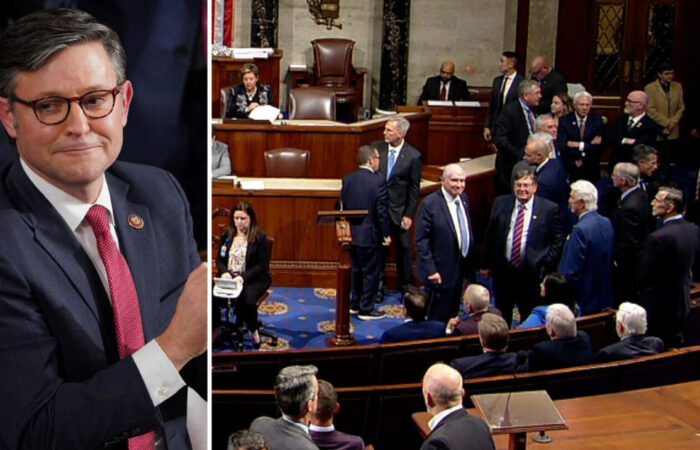Legislation was approved with a vote of 226 to 188 by the House, which is under Republican control, to ensure that future administrations cannot prohibit oil and gas drilling without Congressional approval, marking another significant victory for President Donald Trump.
The “Protecting American Energy Production Act” was enacted by lawmakers during a vote on Friday, which prohibits the president from “declaring a moratorium on hydraulic fracturing unless Congress grants authorization for such a moratorium.”
All Republican members of the House voted in favor of the legislation, while 118 Democrats opposed it.
In the weeks leading up to his departure from office, former President Joe Biden imposed a ban on future oil and gas drilling across 625 million acres of coastal and offshore waters, along with other regulations related to oil and gas. This bill is a response to those actions.
The bill’s sponsor, Republican Rep. August Pfluger from Texas, indicated that the legislation was motivated by concerns regarding potential fracking bans during the Biden administration.
“Upon taking office, President Biden’s administration adopted a ‘whole of government’ strategy to wage war on American energy production, catering to radical environmentalists and undermining this flourishing industry,” Pfluger remarked in a statement after the bill’s passage.
“The legislation that was approved today is a crucial initial step in countering Biden’s assault on energy by preventing the federal government from outlawing hydraulic fracturing,” he added.
As part of his “drill, baby, drill” initiative, President Donald Trump has committed to maximizing energy production within the United States since his campaign.
Should the president enact the bill into law, it would prevent future administrations from banning this drilling method.
On Monday, Secretary of the Interior Doug Burgum initiated internal reviews of agency actions that “hinder” energy development, aiming to eliminate “coercive” climate policies and oil lease restrictions that were established during the Biden administration.
Among all voters surveyed from June 5 to June 8, only 21% expressed approval regarding the manner in which Democrats in Congress are fulfilling their responsibilities, while 70% indicated disapproval.
This 21% approval rating aligns with the figure reported in Quinnipiac’s national poll conducted in February, marking “an all-time low since Quinnipiac University first posed this question to registered voters in March 2009.”
Conversely, the survey reveals that 79% of Republican voters approve of the performance of congressional Republicans, with only 13% expressing disapproval, as reported by Fox News, referencing the survey’s findings.
Among the entire voter population, 32% approved of the job performance of congressional Republicans, whereas just over 60% conveyed disapproval.
Overall approval for Republicans in Congress has decreased by eight points since Quinnipiac’s February poll, with disapproval increasing by nine points during the same timeframe.
The Democratic Party has been experiencing significant political turmoil since the elections in November, when Republicans regained control of the White House and the Senate while maintaining their slim majority in the House.
Compounding this setback, Republicans have made gains with crucial Democratic demographics, including black, Hispanic, and younger voters.
Following President Donald Trump’s return to office earlier this year, a more energized Democratic base has been urging party leaders to adopt a more assertive approach against the president’s extensive and contentious agenda during the initial months of his second term.
Frustration is directed not only at Republicans but also at fellow Democrats perceived as too complacent in their opposition.
This escalating discontent has led to a significant drop in the Democratic Party’s favorability ratings, which have reached unprecedented lows in various polls over the past few months.
This situation appears advantageous for Republicans as they approach the 2026 midterm elections.

